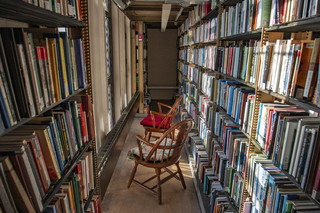In-Person
Past Event: SEMPY: Daniel Whiting (Univ. of Southampton)

This event has passed.
- Past Event: Mon Mar 31, 2025 4:00 p.m.—6:00 p.m.
451 College Street New Haven, CT 06511
Location: 451 College St, B04 seminar room
Title: Is Cavendish an aesthetician?
Abstract
According to Paul Guyer, aesthetics — or, more cautiously, modern aesthetics — is fundamentally and at its core a debate as to whether aesthetic experience involves (i) a distinctive form of knowledge, (ii) an emotional experience, or (iii) a free play of the imagination. Guyer adds that aesthetics — so understood — originates in the eighteenth century. Of course, Guyer's conception of the discipline of aesthetics is a contentious one. But my aim in this paper is not to challenge it. Instead, I will show that Margaret Cavendish's reflections on poetry contain each of ideas (i-iii). Indeed, I will show that Cavendish's account of the experience of writing and reading poetry offer a unique synthesis of those ideas. This is an independently interesting result. But it also shows that aesthetics — as Guyer characterizes it — dates back at least to the seventeenth century.
Sponsored by The Edward J. and Dorothy Clarke Kempf Fund at Yale University.